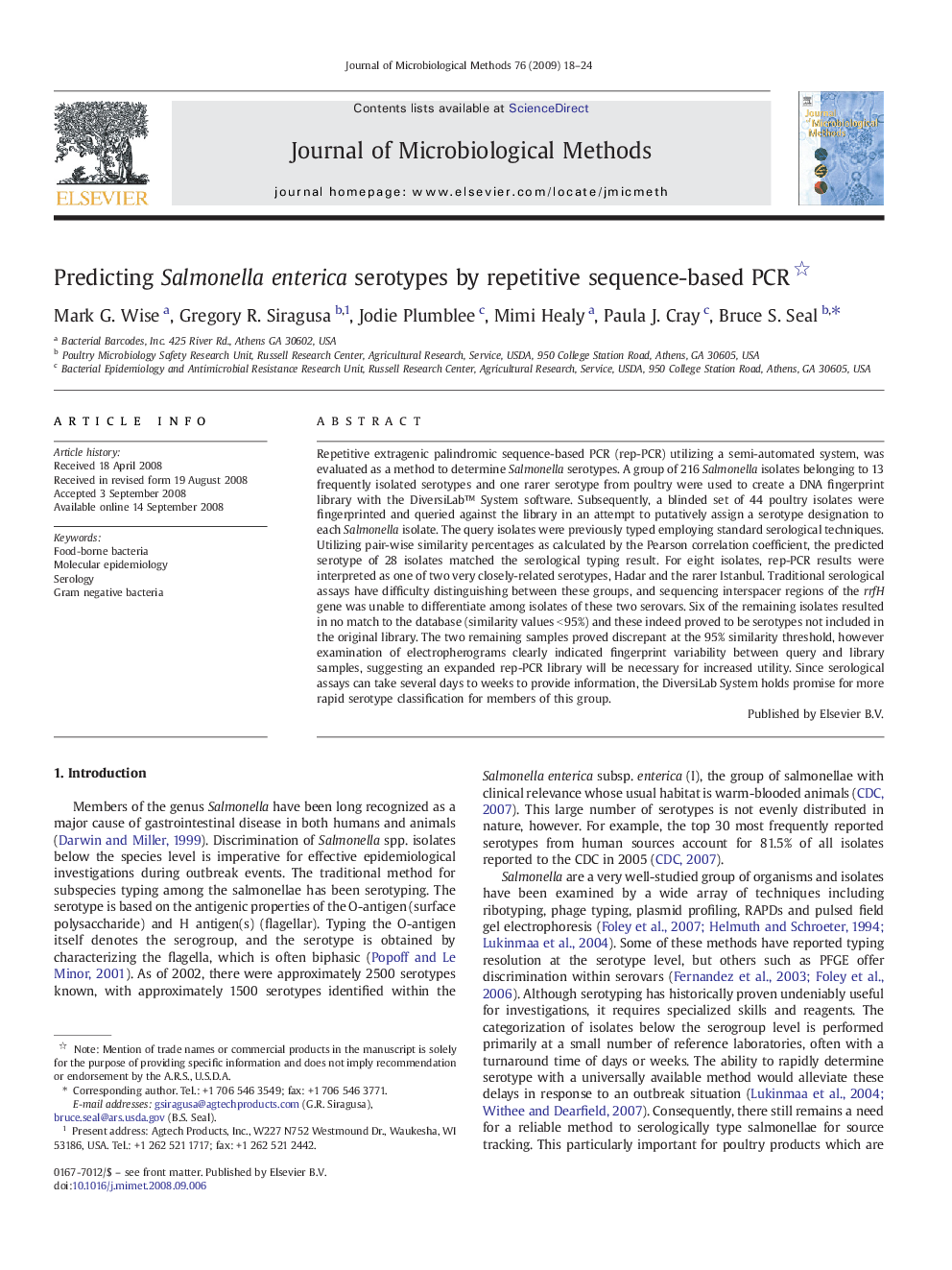| Article ID | Journal | Published Year | Pages | File Type |
|---|---|---|---|---|
| 2091634 | Journal of Microbiological Methods | 2009 | 7 Pages |
Repetitive extragenic palindromic sequence-based PCR (rep-PCR) utilizing a semi-automated system, was evaluated as a method to determine Salmonella serotypes. A group of 216 Salmonella isolates belonging to 13 frequently isolated serotypes and one rarer serotype from poultry were used to create a DNA fingerprint library with the DiversiLab™ System software. Subsequently, a blinded set of 44 poultry isolates were fingerprinted and queried against the library in an attempt to putatively assign a serotype designation to each Salmonella isolate. The query isolates were previously typed employing standard serological techniques. Utilizing pair-wise similarity percentages as calculated by the Pearson correlation coefficient, the predicted serotype of 28 isolates matched the serological typing result. For eight isolates, rep-PCR results were interpreted as one of two very closely-related serotypes, Hadar and the rarer Istanbul. Traditional serological assays have difficulty distinguishing between these groups, and sequencing interspacer regions of the rrfH gene was unable to differentiate among isolates of these two serovars. Six of the remaining isolates resulted in no match to the database (similarity values < 95%) and these indeed proved to be serotypes not included in the original library. The two remaining samples proved discrepant at the 95% similarity threshold, however examination of electropherograms clearly indicated fingerprint variability between query and library samples, suggesting an expanded rep-PCR library will be necessary for increased utility. Since serological assays can take several days to weeks to provide information, the DiversiLab System holds promise for more rapid serotype classification for members of this group.
